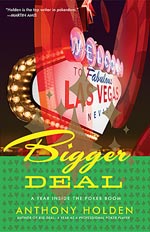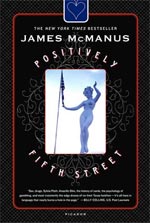
Hearts and minds: What’s the connection between writers and poker?
-

- By Kevin Labianco / CC
A couple of years ago, I was asked by the Los Angeles Times to review Anthony Holden’s second poker book, Bigger Deal. At the time, my dealings—ahem—with poker were minimal. I had a weekly game with a rotating cast of high school friends; I lost most of the time, and on rare occasions, when I got really lucky, I left with enough money to pay my cab fare home. (The rest of the time, I walked.) Still, I found myself unexpectedly engrossed by Holden’s account.
Like Big Deal, this sequel was set at the big stakes tables in Vegas and Europe. Its cast was comprised of the bigger-than-life urban cowboys and suave playboys that regularly bet—and just as regularly lose—millions of dollars in a single hand. More interesting still for this particular lit geek were the names that made up Holden’s inner circle: Amis, Hitchens, Al Alvarez. As it turned out, not only did some of my favorite writers play poker, but they were pretty damn good at it, too.

But it’s also written in the same reverent tone that defined Bigger Deal, Alverez’s The Biggest Game in Town, and my favorite poker book, Positively Fifth Street, by Harper’s contributor and novelist James McManus. These three books are at least twice as exciting as any other sports-related nonfiction you’re ever likely to read. What is it about poker that draws world-class writers to the baize? How can a game—so simple on its face—be the subject of so much fantastic, engrossing, downright smart literature?

The other theory is rooted in a simple fact: most writers aren’t very mathematically savvy. And poker is, at heart, a game of math. You can play for a while on intuition, but as Ferguson tells Wilkinson, in the small circle of top-notch talent, intuition ain’t enough. You’ve got to know the percentages by heart; you’ve got to be able to ascertain who has what, and when they got it. So for a literature person—who may or may not have passed his 10th grade algebra class—the mechanics of a high-stakes poker game might as well be alchemy. It’s a right brain/left brain kind of thing. We’re like little kids at a magic show, waiting for the rabbit to pop out of the felt-lined hat.
